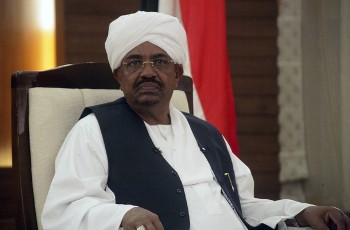Bashir vents frustration with Western approach towards Sudan
January 6, 2012 (KHARTOUM) – Sudanese President Omer Hassan Al-Bashir has discounted promises by the West to support his country in the wake of South Sudan’s secession, saying Khartoum has already moved on to devise plans for economic sustainability.

As a result, the country lost its greater generator of hard currency, giving rise to worsening economic conditions and concomitant public discontent. US economic sanctions imposed on the country since 1997 made matters worse.
Addressing a gathering of civil service officials in the capital Khartoum on Monday, Al-Bashir has not concealed his disillusion with what he described as Western promises to help his country despite the fact that Sudan had fulfilled all of its obligations towards the international community.
Al-Bashir told the gathering that the West rushed to lift economic sanctions on South Sudan despite the fact that the latter continues to fuel instability and give sanctuary to rebels in his country’s border states of South Kordofan and Blue Nile.
Sudanese officials often voice frustration at the West’s failure to help the country write off its external debts and lift US economic sanctions despite what they see as concessions Sudan offered by implementing the CPA and allowing the south to secede peacefully.
The future of Sudan’s economic situation is looking bleaker than ever after South Sudan suspended oil production in a bitter row with Khartoum over the fees required to transport southern oil through Sudan to the Red Sea Port of Port Sudan.
But Bashir sees a bright side to the situation. He told the gathering that the loss of oil revenues had motivated his country to look for new resources through new economic schemes designed to overhaul minerals and agriculture production.
An international conference to discuss Sudan’s economic situation following the secession of the south was due to take place in Istanbul last year but it was postponed to March this year in order to allow greater participation.
Sudan hopes the conference will generate support for Khartoum to have its external debts waived.
(ST)
